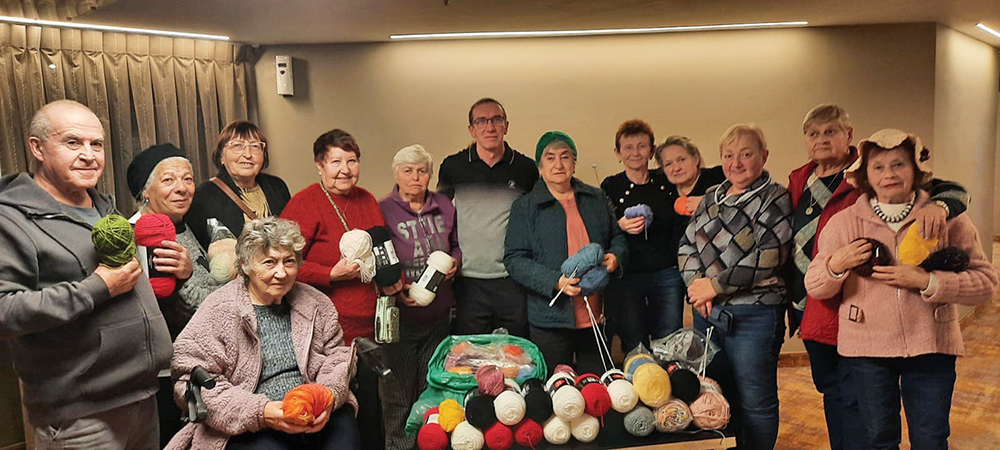
In the heart of Israel, a beacon of compassion shines brightly, drawing those in search of meaningful volunteer work to her. Karen Pichel, a remarkable soul from Har Nof, has become synonymous with volunteerism in Israel, not just for her vast knowledge of available opportunities, but for her unparalleled ability to truly listen.
Living in Har Nof, Pichel’s journey into the world of volunteering began with a keen eye for identifying needs and a readiness to fill them. Recognizing a gap in the volunteer industry, namely that the organizations in need of help were too overwhelmed to take or return calls from potential volunteers, she stepped in to connect eager helpers with the plethora of opportunities awaiting them. Her role evolved into a full-time commitment, where she meticulously tends to calls and messages, ensuring that no opportunity or volunteer was left unattended. Pichel’s compassionate heart, coupled with her business acumen, led her to address the weaknesses in the volunteer chain, making it more robust and successful. She seamlessly transitioned from one role to another, bridging the gap between organizations and volunteers and enhancing the efficiency of the system.
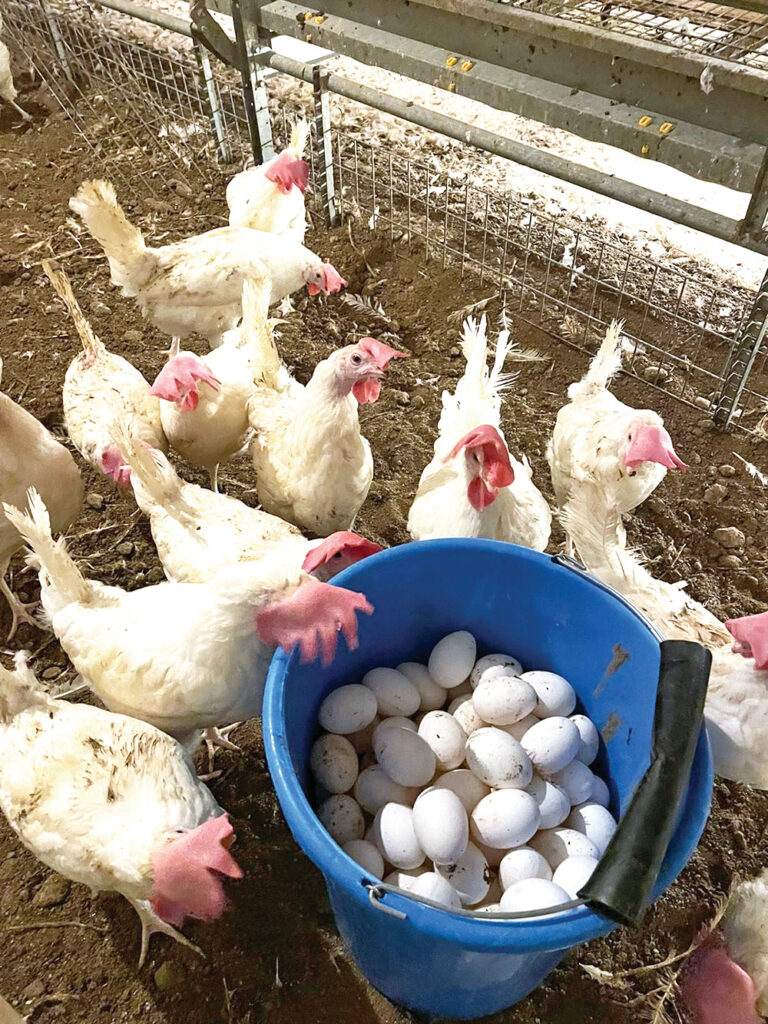
Many of the farms were hurting because their employees had fled or were sent back home and while they were looking for assistance, they couldn’t return calls, creating a hole in the process. The same was true for an organization called Tachlit, based in Givat Shaul, so Pichel walked over from her home in Har Nof and offered her assistance.
Tachlit delivers fruit and vegetable baskets every week to 1,500 families, and it’s a huge undertaking to package all the produce that comes in. Pichel offered her assistance and managed to fill three large volunteer shifts per week. She reviews details of travel arrangements and responsibilities with those looking to pitch in and often helps out herself.
Pichel became the administrator of several WhatsApp volunteer groups, including the Tachlit, Netzarim Brigade and Hotel Brigade volunteer groups, answering questions for people prior to beginning their roles. In several groups, she notices people asking the same questions again and again, seemingly aimless and not being able to find the right direction in which to commit to work. Pichel knows what questions to ask, understands how to read between the lines, and then can easily help those in need create a workable volunteer schedule for themselves. The minutes of her day are filled with lengthy phone calls and text message conversations with complete strangers, ensuring they feel comfortable with their commitments and matching them with the perfect fit.
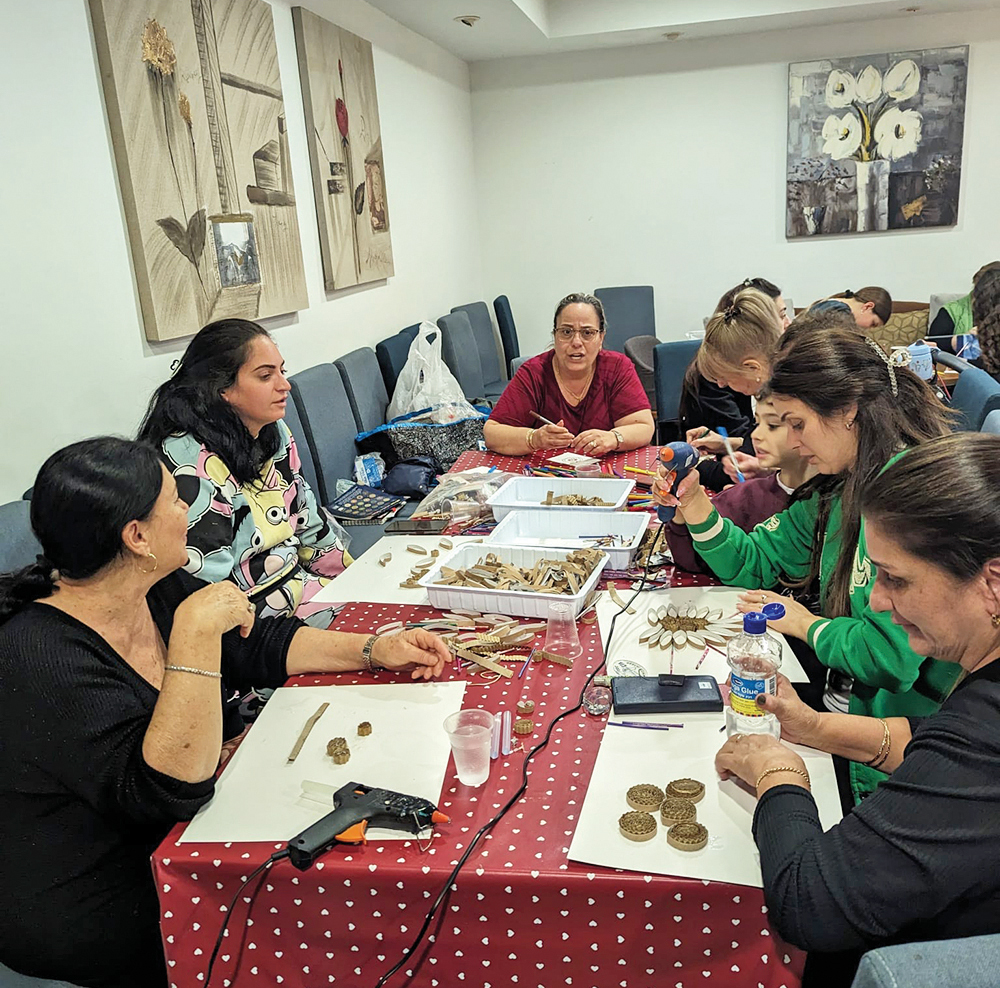
She said the key is often just to patiently listen and many times she wants to collapse from all of the energy this role requires, to throw her phone away and never answer another question. Pichel often even doubts if she is truly making a difference and doing meaningful work, but then she sleeps on it and feels refreshed in the morning and remembers that she is lucky because she gets a choice in her struggles and isn’t forced into these challenges, whereas others, like the soldiers, are not.
Pichel doesn’t just do the administrative work; she also volunteers packing food at Tachlit, rescues and distributes food, cooks for soldiers, and collects challahs and baked goods for them. She can also be found negotiating wholesale prices on thermals for soldiers and distributing them, preparing packets of candles and Tehillim for hostages, collecting yarn for displaced women to knit, and leading art workshops for evacuees. She helps organizations by posting volunteer opportunities in various social media forums while answering the endless stream of questions of the interested parties. She is the human resources person that any successful company would want to have as she is the binding factor between organization and volunteer, the cog in the wheel that makes things turn efficiently, but doing it selflessly, without expecting anything in return.
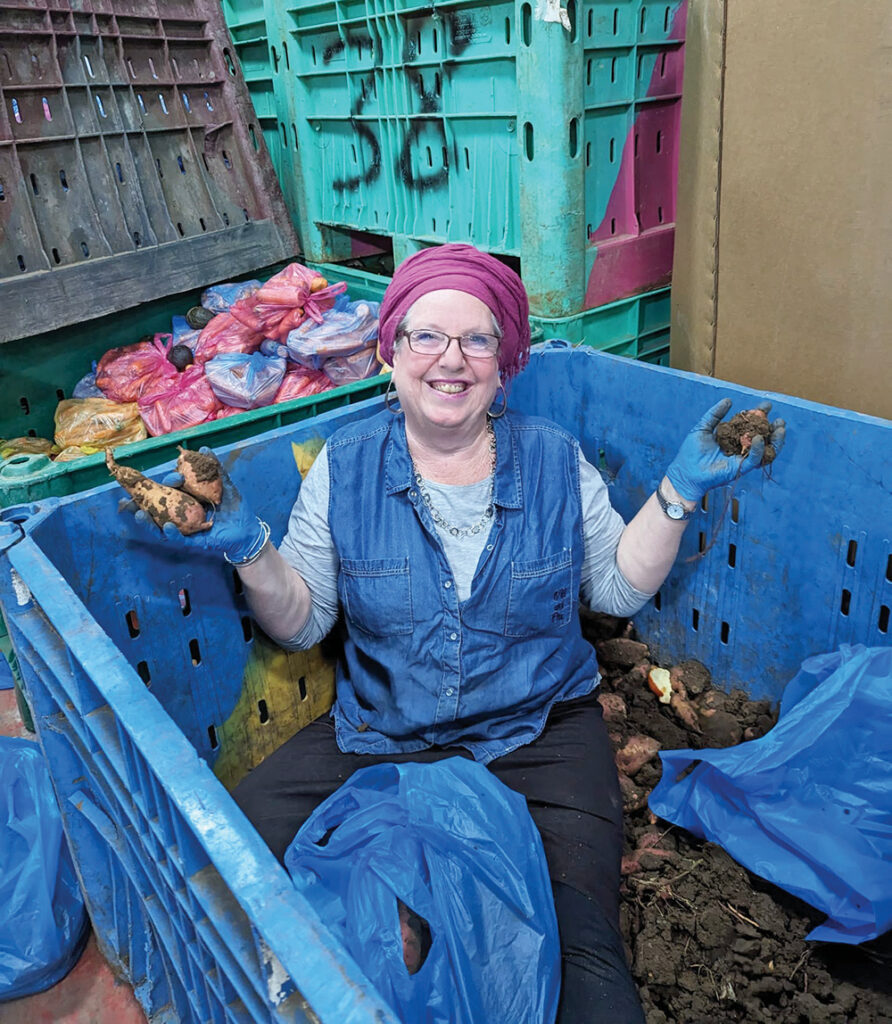
Pichel was also nicknamed “The Egg Lady,” as she was the one who stepped up and arranged for volunteers to pick up eggs in two chicken coops for six weeks straight, six days a week, although she herself had never even been there. She did this until their foreign workers returned and volunteers were no longer needed, and it was a relief as the work was strenuous and intense, making sure the chicken farms were up and running on a daily basis.
Pichel herself also discovered almost four years ago that many stores were throwing away perfectly good produce and food, and began to rescue and repackage 40,000 shekel of food per month, personally distributing it to families in need in Jerusalem; she also gives it to larger organizations that cook or distribute food.
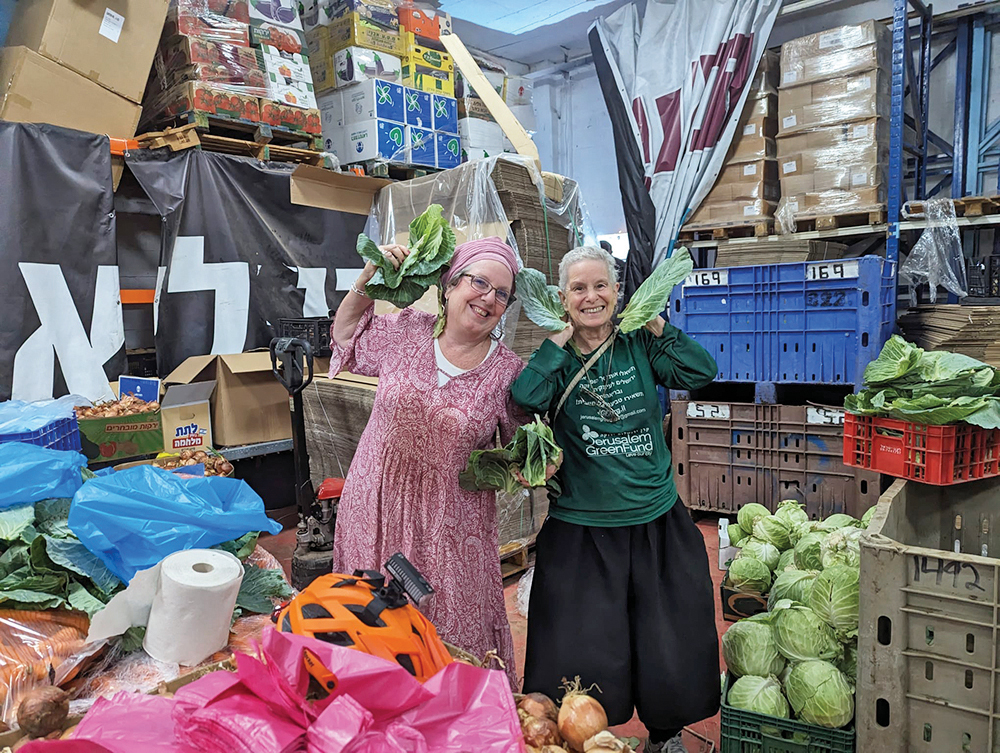
But underneath it all — all of the hours she spends giving of her time — is the sacred act of listening. Pichel said everyone has something to give no matter where they are in life, but the greatest gift is being present with someone and anyone can do that. Listening with true empathy helps people to connect and that is a basic human need that provides even more nourishment than food or water. And if a person can listen correctly, they can easily complete this tremendous chesed from any location for any other person.
A woman had recently posted on some Facebook groups that she was looking for volunteer programs for young adults for her son who was with her husband volunteering in Israel, but then her son had wanted to stay. So Pichel picked up the phone and called the woman, who lives across the globe, many continents and time zones away. She spoke to the mother and was referred to the father, and through listening, she sensed that the son needed some kind of protective environment. She suggested maybe he should go to a yeshiva where he could learn and volunteer, did some research and made calls, and the father ultimately dismissed the idea as the son was not (yet) religious. A month later, the boy called Pichel and said that his parents put him in a volunteer program and he wasn’t happy, and his mother suggested he reach out to her for ideas. When Pichel asked what he was interested in doing, the young man replied, “I really want to learn Torah,” so she helped him get into yeshiva. There is a young man learning Torah in yeshiva, an extra soul being elevated in Judaism simply because of the time Pichel invested into this family.
Listening to people properly can make a profound difference in their lives; it’s not even a unique need during the time of war, but universally necessary during all seasons and all times of life. People can make changes through the gift of their presence.
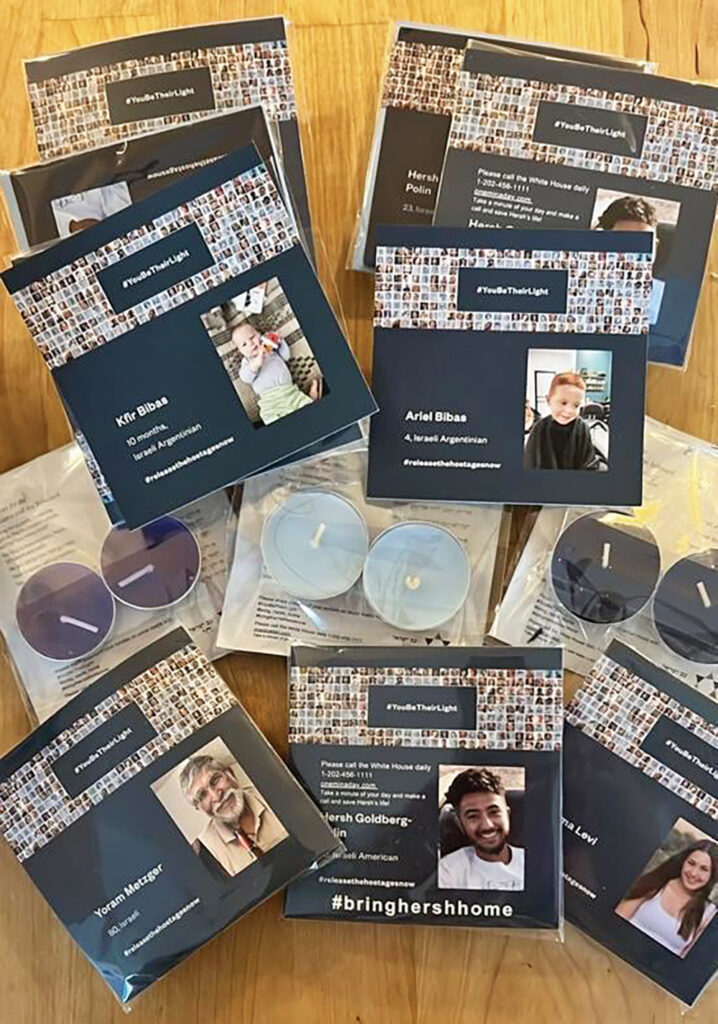
Pichel observed that the earlier days of the war coincided with Parshat Noach and what she found was deeply meaningful for her was that Noach brought the redemption of his family who was trapped in turbulent water by doing chesed for them and for the animals. He could not get off of the boat, no matter how infuriating or depressing it was. He did not know when the flood would end, but he had a choice every day to help others or to retreat inside himself. And just like Noach chose to constantly do acts of chesed and thus arrived at salvation, so too must everyone choose to perform chesed for other people, even something as simple as sending a text message, answering a question or being there to listen. Helping other people, treating them with respect and kindness, can make ripples and waves and eventually help every individual arrive at that special place of safety and security.
In a world clouded by noise, an unflooded world, a world with missing hostages, empty Shabbat tables and falling rockets, Pichel’s personal mission reminds the world of the power of communication, of listening and of being there for one another. Her journey is a testament to the transformative power of empathy, inspiring each person to listen more deeply, love more fully, and serve with unwavering devotion. Her path of purposeful volunteerism is not just a journey; it is a way of life, a refined character trait that serves as an example to all: to listen, to serve and to be the light that illuminates the darkest corners of our world.
Sarah Abenaim is a writer, life coach and journaling workshop curator who lives with her husband and kids. To be featured in one of her stories, reach out to her at sarahabenaim@gmail.com or to David Siegel at djs.siegel@gmail.com. To learn more about how to make an impact in the war effort, check out tinyurl.com/rinat-volunteeringinIsrael.









